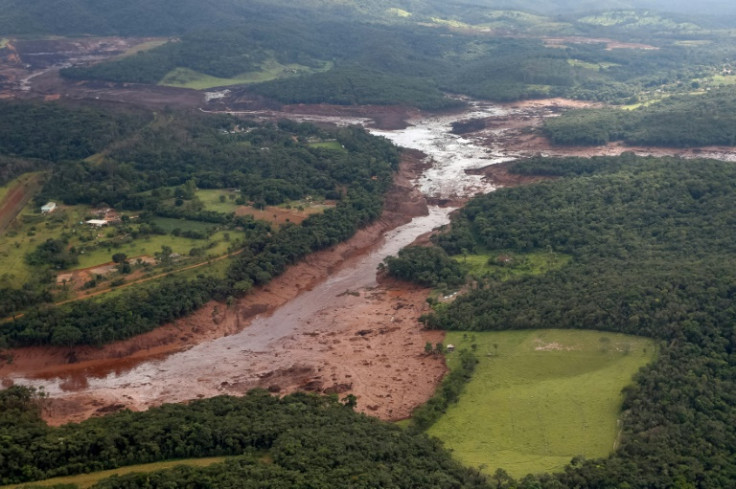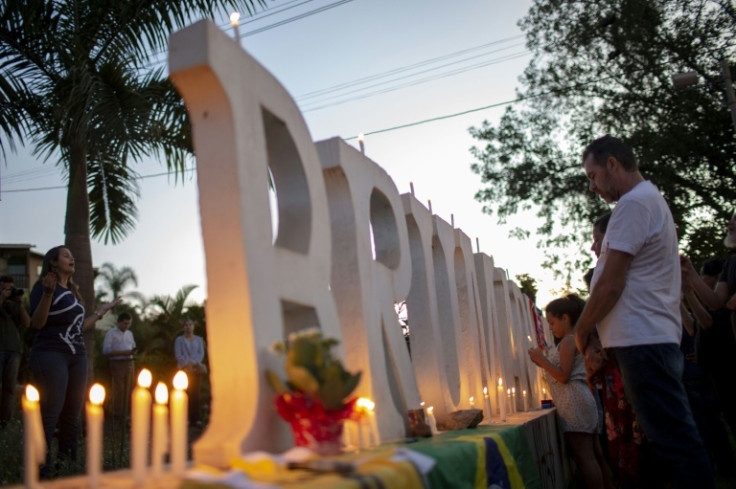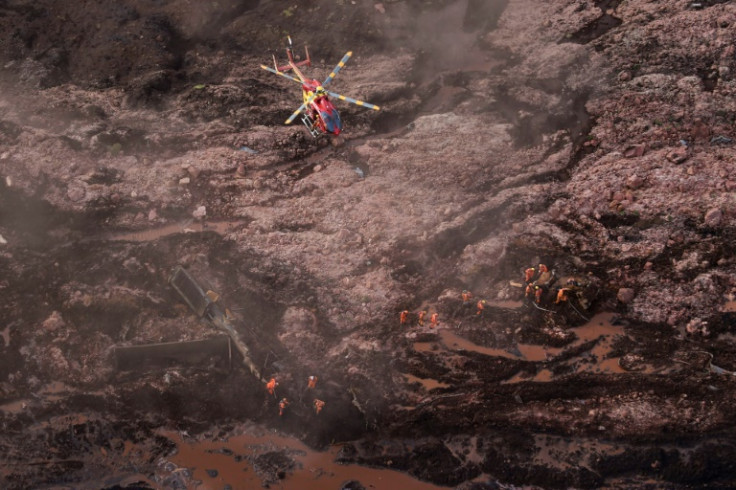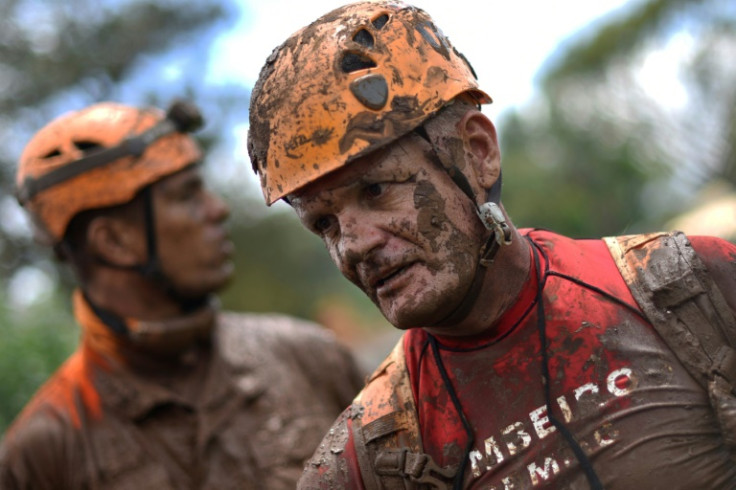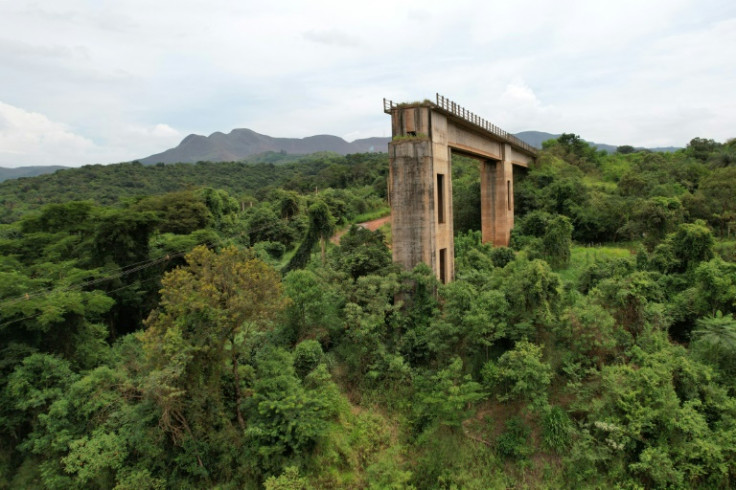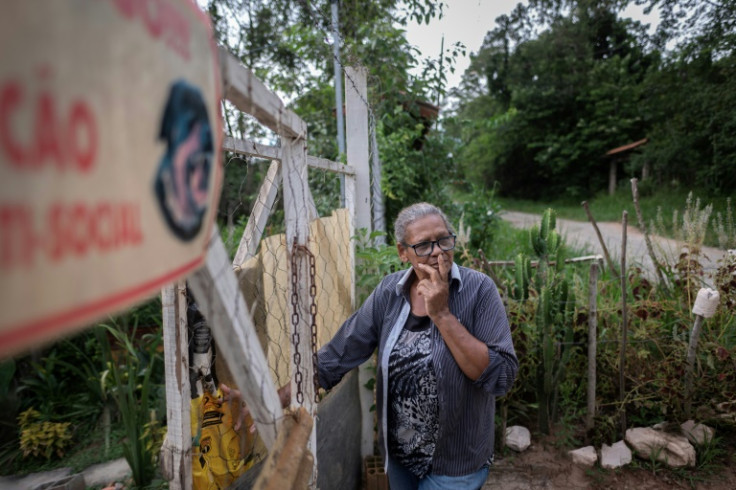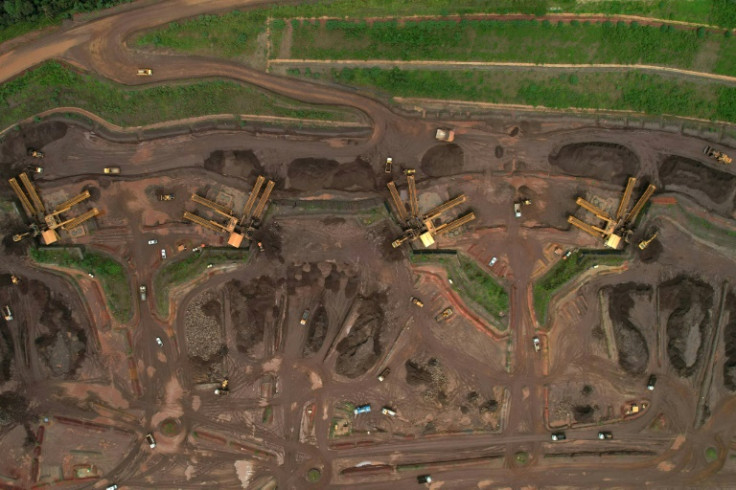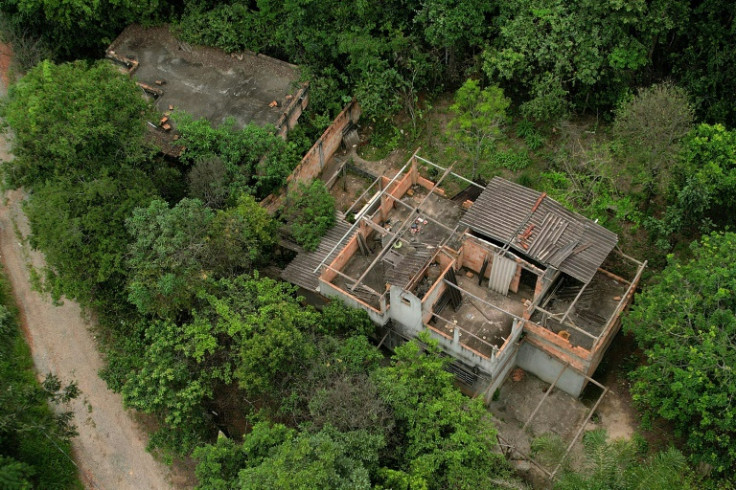
Nathalia de Oliveira, an intern at Brazilian mining giant Vale in the town of Brumadinho, was talking on the phone with her husband when she noticed a rush of birds overhead and felt the ground shake.
When the 25-year-old mother of two turned, she saw an oncoming wall of liquid mud.
"God save me," she said, according to her family. Then her phone went dead.
Oliveira was one of 270 people killed when a dam holding more than 11 million cubic meters (nearly three billion gallons) of mining waste collapsed on January 25, 2019, unleashing a brown sea of sludge.
Five years later, emergency workers are still searching for Oliveira and two others whose remains have never been found.
Using heavy machinery, they dig up piles of hardened muck from around the now-defunct mine, then meticulously sift through it for signs of the missing and presumed dead.
"It's agonizing," said Oliveira's cousin, Tania de Oliveira, 51.
"Day after day, year after year, and they still haven't found her," she told AFP, her voice breaking.
"We're hoping to give her a proper burial, so she can rest. So we can rest."
Brazil was still recovering from another mining disaster -- a dam collapse in November 2015 at an iron ore mine co-owned by Vale and Australia's BHP -- when the tragedy struck.
The 2015 spill hit the town of Mariana, 125 kilometers (80 miles) from Brumadinho, both in the southeastern state of Minas Gerais. It killed 19 people and sent 40 million cubic meters of toxic sludge into the Doce River and Atlantic Ocean.
Brumadinho would prove even deadlier.
The dam at the Corrego do Feijao mine burst at 12:28 pm, just as workers were having lunch at the cafeteria.
It inundated an area the size of 270 football fields with tailings, the residues from processing ore.
Survivors described horrifying scenes as the wave of sludge obliterated virtually everything in its path.
AFP reporters who rushed to the scene recall rescue workers recovering bodies torn to pieces by the force of the mud, and the constant drone of helicopters lifting victims from the sludge.
"It was a scene of total desolation," the first rescuer to arrive, firefighter Filipe Rocha, told AFP.
Today, the mine has been shuttered -- though the giant brown splotch remains a hive of activity, with bulldozers and mechanical sifters searching for the missing.
A railroad bridge whose midsection was ripped out by the mud bears silent witness to the tragedy, weeds growing on its severed tracks.
Little remains of the once bustling neighborhoods around the mine in Brumadinho, an iron-belt town of 40,000 people.
Joaquina de Oliveira, a 71-year-old housewife in the Parque da Cachoeira neighborhood, is among the few who stayed.
Most of her neighbors accepted settlement payments from Vale to relocate. She took the company to court instead.
"I can't leave," she told AFP.
"The other neighbors who are suing Vale have all had their houses broken into and looted. If I leave, the same thing will happen to me."
Residents of the 26 affected municipalities say the sludge turned their river, the Paraopeba, unfit for drinking, fishing and farming.
A 2020 study found excessive levels of heavy metals in the water.
It is still unclear exactly what caused the collapse of the 43-year-old dam, which had been decommissioned in 2016.
A study published this month found microscopic displacements in the layers of tailings -- so tiny they were not detected by monitoring -- could have created so much accumulated pressure they ruptured the dam.
In 2021, Vale agreed to pay nearly 38 billion reais (around $7 billion) in damages, including for environmental clean-up. The company says it has also reached individual agreements to pay an additional 3.5 billion reais to victims' families and others affected.
Prosecutors have charged Vale ex-chief executive Fabio Schvartsman and 15 others with intentional homicide, alleging the company and German consulting firm TUEV SUED, which audited the dam's safety, colluded to hide the risk.
Defense attorneys deny the accusations.
Tania de Oliveira says she and her family are still waiting for justice.
"Nobody has paid for what they did."
